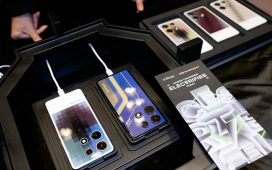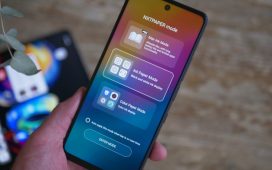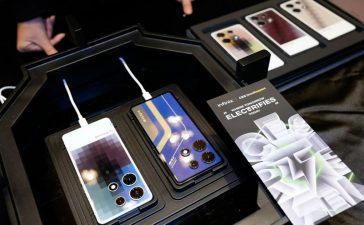These days, young children are proficient at using tablets and teenagers are glued to their smartphones. A gadget-filled classroom has been the norm for Gen Z.
One in six students say they are texting or checking social media on their phones while classes are in session, noted Sen. Mitt Romney.
“The negative impacts of social media on the well-being of our children are becoming more and more evident,” Romney, R-Utah, said in a press release. “Curbing the non-educational use of smartphones in the classroom may not only help raise students’ GPAs and increase their focus, but also help improve the mental health of our students.”
The GOP senator offered two amendments, aimed at furthering research on the impact of smartphones, to the Advancing Research in Education Act, or AREA, during a Senate Health, Education, Labor, and Pension Committee executive session Tuesday.
The legislation, introduced by Sens. Bernie Sanders, I-Vt., and Bill Cassidy, R-La., will reauthorize the Education Sciences Research Act, which will modernize research and data structures to support the U.S. education system.
“This legislation will ensure that high-quality and timely research gets into the hands of teachers and principals so that they can improve teaching and learning in our nation’s schools,” said Sanders, the chairman of the Senate committee, in a statement.
The Education Sciences Research Act was passed in 2002, expired in 2007, and has not been reauthorized since. It created the Institute for Education Sciences, an independent research agency that oversees the national centers for education statistics and research, which collect data related to student demographics and academic outcomes from tests and conduct scientific inquiries about the most pressing concerns of 21st-century schools, according to Education Week.
Romney’s first proposed amendment would instruct the statistics commissioner of the National Center for Education Statistics to collect data about the smartphone-related policies instated in schools, local educational agencies and the state.
In 2020, the national statistics center found that 76% of U.S. schools had varying degrees of cellphone bans in place, while some states — including Florida, Ohio, Colorado, Maryland, Connecticut, Pennsylvania, Virginia and California — passed or were drafting laws to prohibit cellphone use in schools.
The second would direct the research commissioner of the National Center for Education Research to assess the impact phone usage during instructional hours has on a student’s academic achievement and mental health, as well as evaluate the local and state policies about smartphones. Sen. Tim Kaine, D-Va., co-sponsored both of Romney’s proposals.
The Senate committee approved both the amendments and added them to AREA, which passed with overwhelming support in a 20-1 vote. Romney said he was pleased with the committee’s decision, adding, “it’s imperative that policymakers have access to evidence-based information before implementing changes to help our students improve their health and academics.”
Romney’s amendments coincide with Utah Gov. Spencer Cox’s efforts to minimize the harmful effects of social media on children.
“I believe we are wired for connection and as a result of disconnection or the wrong connections, we’re seeing that mental health is taking a beating,” the Utah governor said in October 2022, according to KSL.com. Utah’s legislators passed a law requiring age verification for social media accounts and the removal of addictive features in March.
But the bill, introduced by state Rep. Trevor Lee, R-Layton, during the 2023 legislative session, to ban both cellphones and smartwatches in K-12 classrooms struggled to gain support in the House.
“There are a lot of harmful side effects that we’re seeing from cellphones when it comes to children,” Lee told the Deseret News. “We’ve seen massive increases in mental health problems that are coming from phone use … in the current public education system.”
Following the state representative’s proposal, the United Nations issued a call to ban all cellphones from classrooms around the world in August. Their report suggested phones are distracting, and “even just having a mobile phone nearby with notifications coming through is enough to result in students losing their attention from the task at hand.”












